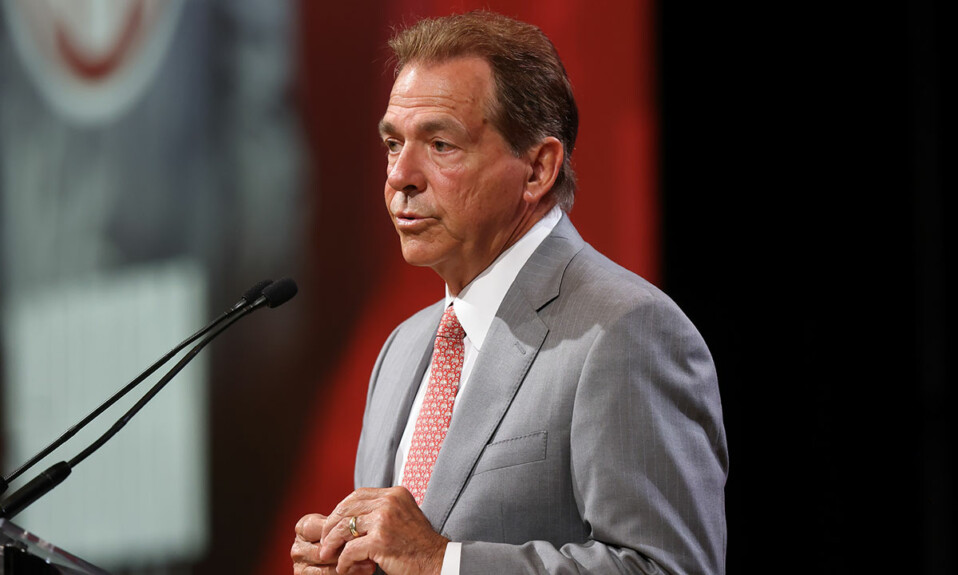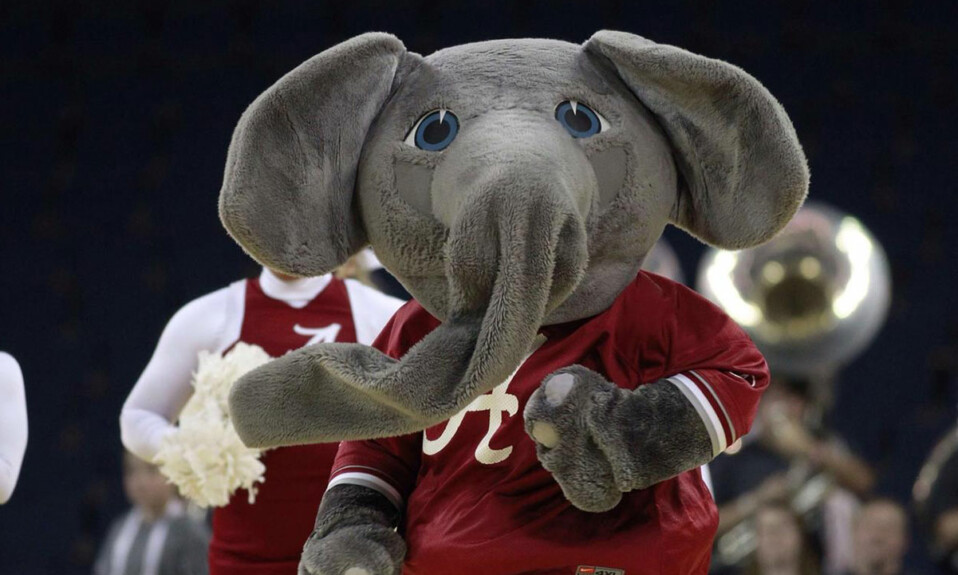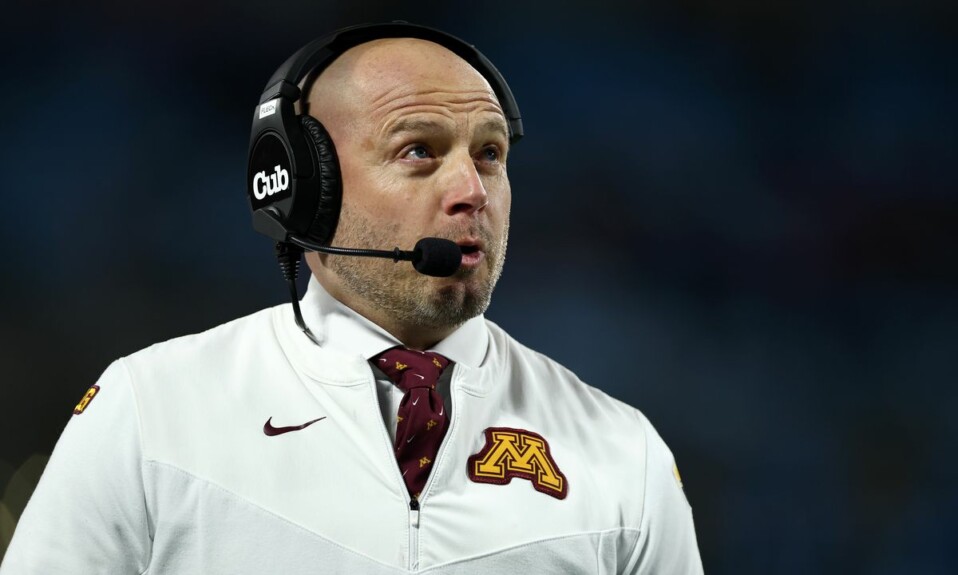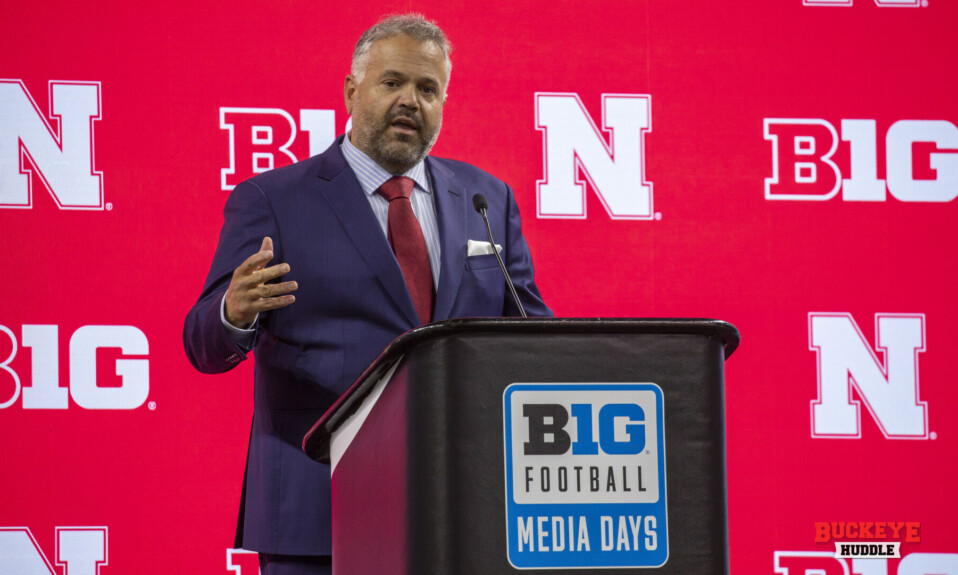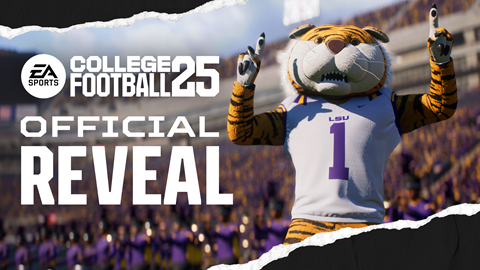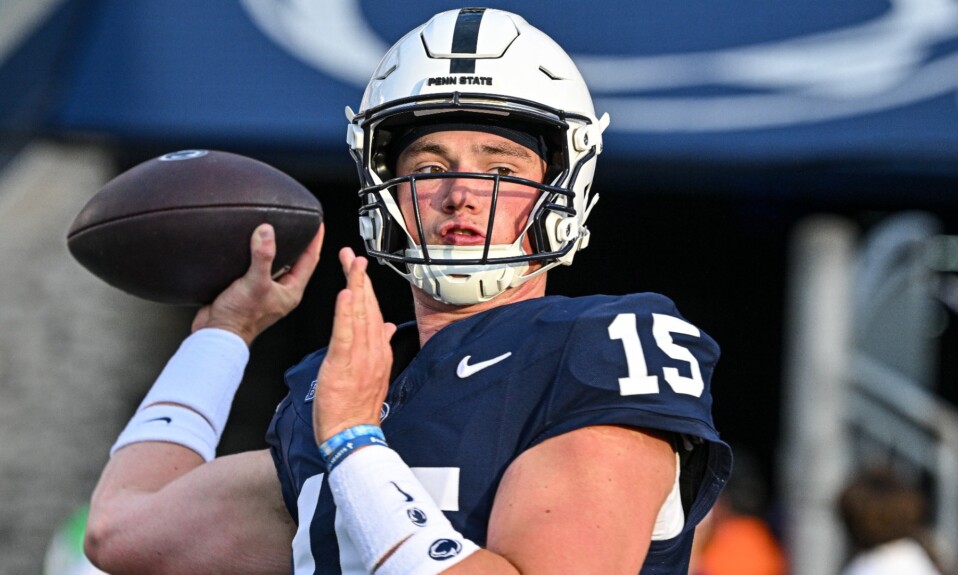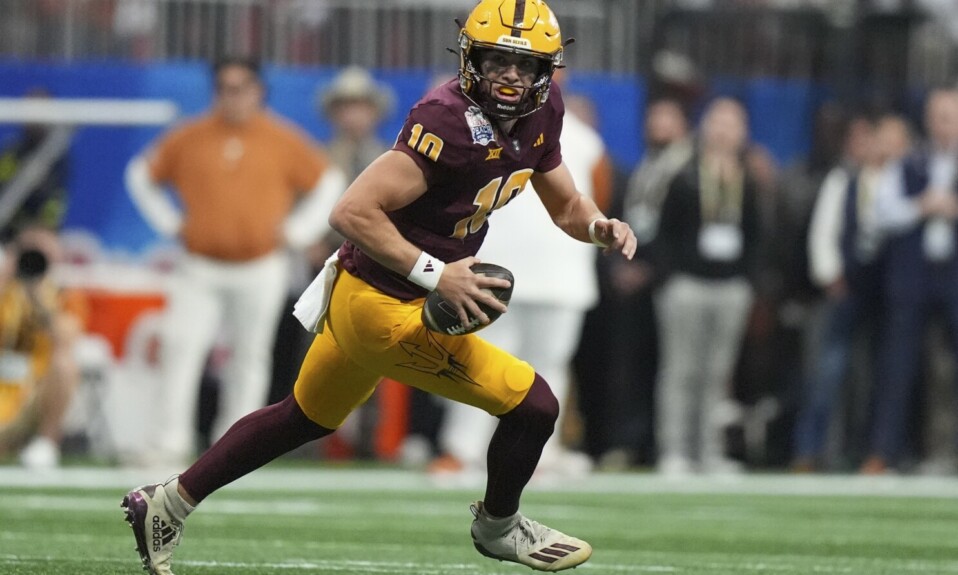Many have wondered when the federal government might get involved among the NCAA surrounding topics such as name, image and likeness, and things are getting down to crunch time in Congress.
Texas senator Ted Cruz hosted an NIL roundtable Tuesday on Capitol Hill. Former Alabama head coach Nick Saban was in attendance and shared his perspectives on how NIL has impacted college football since its inception in 2021, in addition to being joined by Crimson Tide athletics director Greg Byrne, Atlantic Coast Conference commissioner Jim Phillips and women’s basketball players Hanna Cavinder and Haley Cavinder among others.
READ: Reports: Xavier Worthy’s Combine cleats, jersey to be displayed in Pro Football Hall of Fame
Saban has said NIL played a factor into his surprising retirement announced in January. Among the changes in college athletics also include the evolution of the transfer portal and conference realignment, and Saban experienced change in almost every aspect of coaching compared to when he started.
“All the things that I’ve believed in for all these years — 50 years of coaching — no longer exist in college athletics,” Saban said. “So it’s always about developing players. It was always about helping people be more successful in life.”
It didn’t become apparent to him until a conversation with his wife Terry Saban sparked a change in thought.
“She came to me like right before I retired and said, ‘Why are we doing this?'” Saban said. “And I said, ‘Well, what do you mean?’ She said, ‘All they care about is how much you’re going to pay them. They don’t care about how you’re going to develop them, which is what we’ve always done, so why are we doing this.’ So, you know, to me, that was sort of a red alert that we really are creating a circumstance here that is not beneficial to the development of young people.”
READ: Reports: QB Drew Pyne transfers to Missouri
Currently, the NCAA cannot enforce its NIL rules as the ongoing Tennessee and Virginia lawsuit plays out. This means that the possibility of third parties reaching out to recruits about possible NIL deals becomes more of a reality.
The possibility of student-athletes becoming “employees” was also a topic of discussion during the roundtable. Revenue sharing with student-athletes was discussed.
Saban set out upon his retirement to become an advocate for student-athletes. He’s said he wants to help “improve the quality of life” for players and still shape them to be better people.
The direction that college athletics is heading is unclear. There are many areas that still need addressed, whether that involves the federal government or not, and it remains to be seen just how soon legislation from Congress could be implemented to work out some of the issues that are prevalent today.
